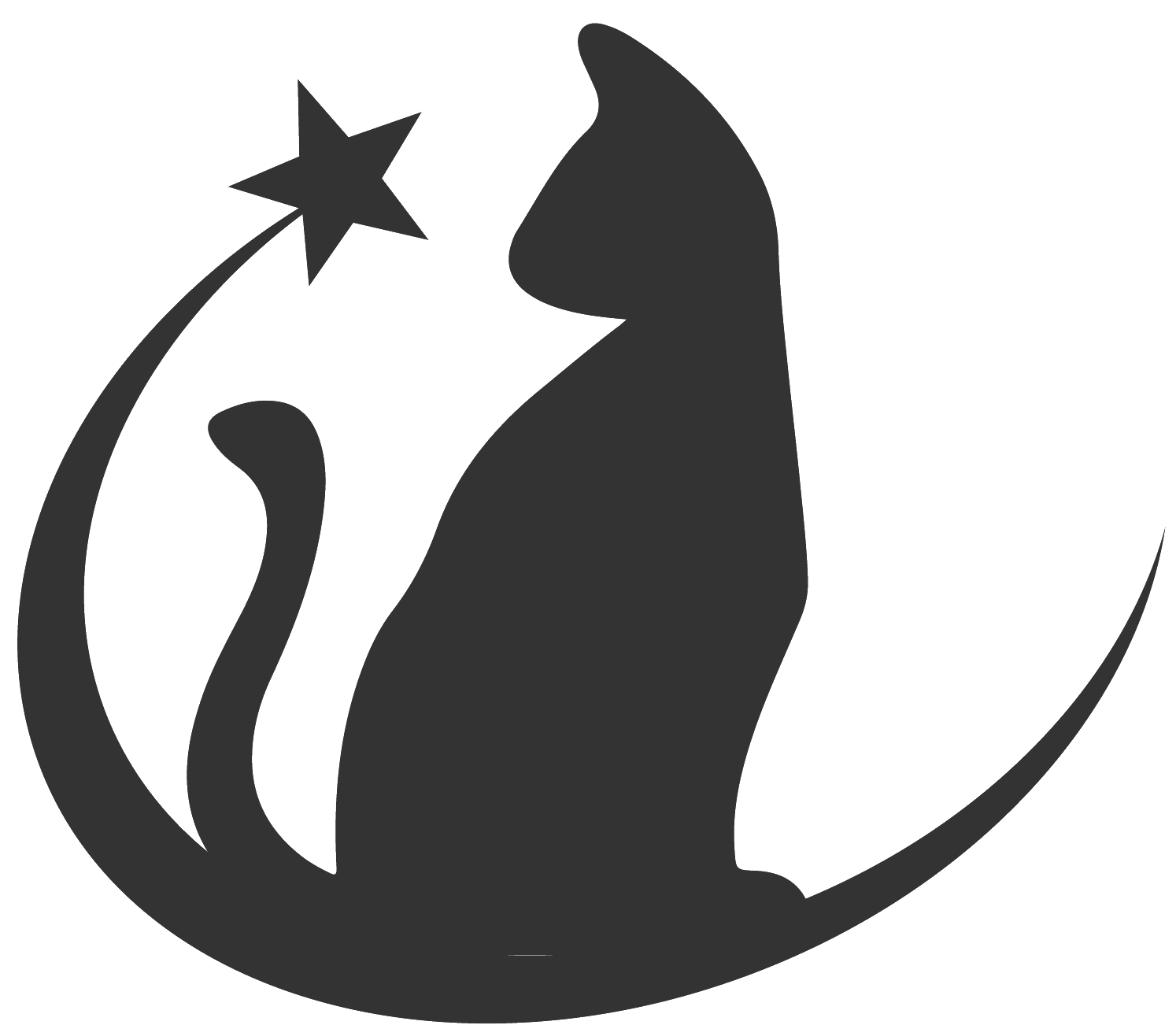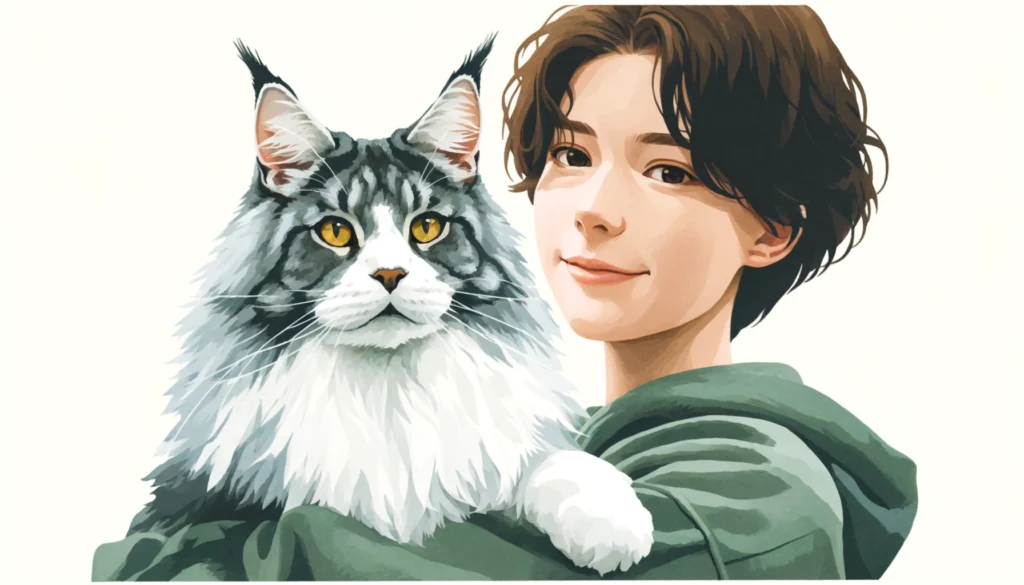
If a stuffed animal were to spring to life, it might closely resemble a Maine Coon cat. Celebrated for their luxurious fluff, Maine Coons have achieved stardom on social media platforms. As purebred cats, they are seldom found in conventional animal shelters, yet they are highly sought after for their exceptional cuddliness. Maine Coons display a range of intriguing aesthetic and behavioral traits. To better understand these characteristics, we consulted a veterinarian for expert insights into the unique appeal of these splendidly plush felines.
Maine Coon characteristics: Physical
Maine Coon cats are renowned for their substantial size. “They are among the largest breeds of domestic cats,” notes Nicole Savageau, VMD, a veterinarian with The Vets. She adds, “They feature elongated bodies, significantly larger heads, and oversized paws compared to most other breeds.” Typically, male Maine Coons weigh between 18 to 25 pounds, while females range from 10 to 14 pounds.
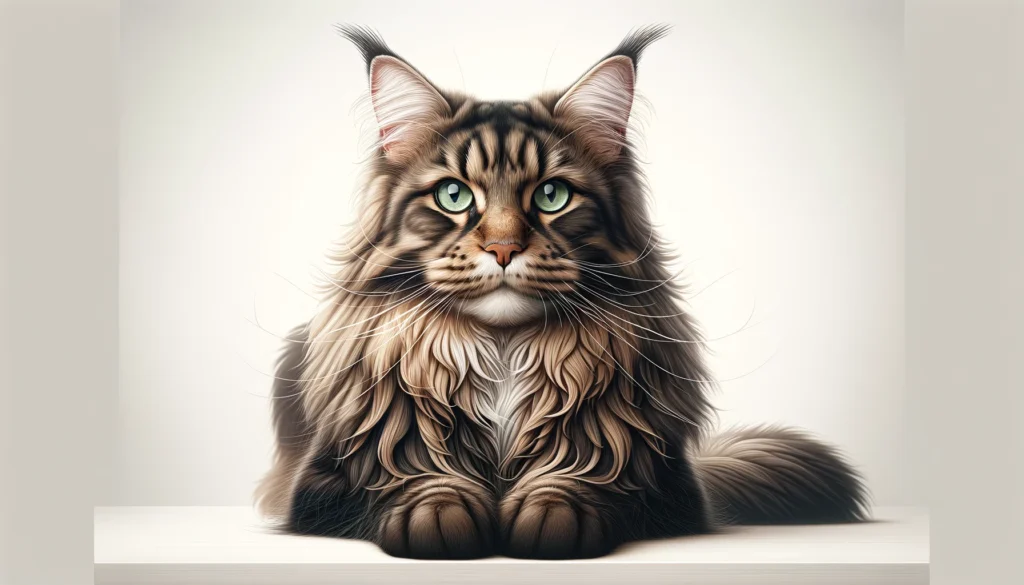
The origins of this breed in Maine contribute to their impressive stature. Their thick, furry coats and large paws provided essential warmth during the harsh Maine winters. Dr. Savageau likens their paws to “nature’s snowshoes.”The grandeur of Maine Coons extends even to their whiskers. Dr. Savageau points out, “They are known for having the longest whiskers of any cat breed, which are record-setting.” These lengthy whiskers enhanced their ability to navigate challenging climates. Additionally, distinctive tufts on their ears augment their auditory perception, further adapting them to their environments.
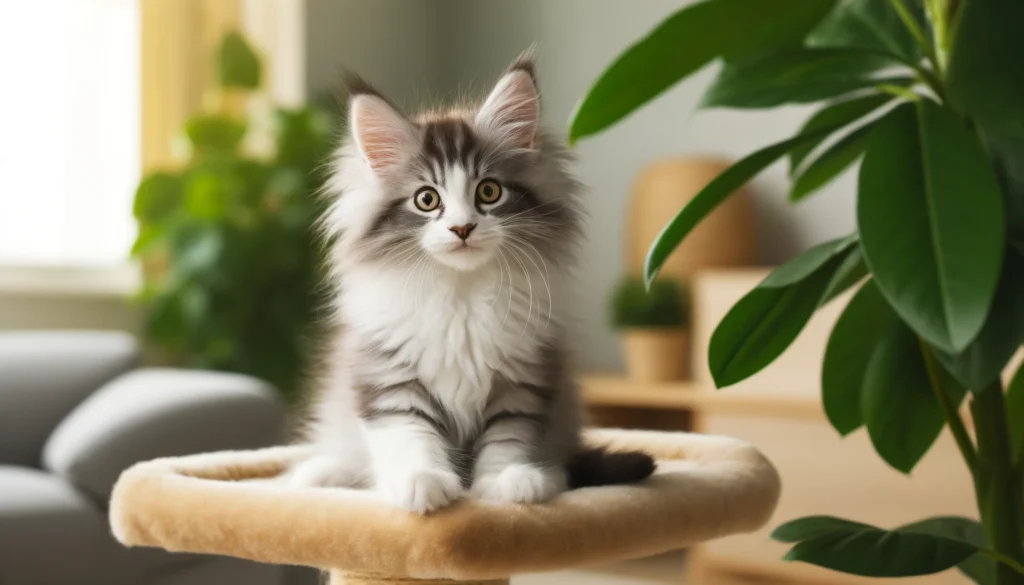
Maine Coon characteristics: Personality
Contrary to what one might assume based on their size, Maine Coons are far from aggressive. According to Dr. Savageau, these cats are often referred to as “gentle giants.” Renowned for their calm and affectionate demeanor, they are exceptionally well-suited for family life, displaying remarkable compatibility with children and other pets. Maine Coons distinguish themselves from more athletic breeds with their relaxed nature, Dr. Savageau notes, describing them as “tend to be more laid back.”
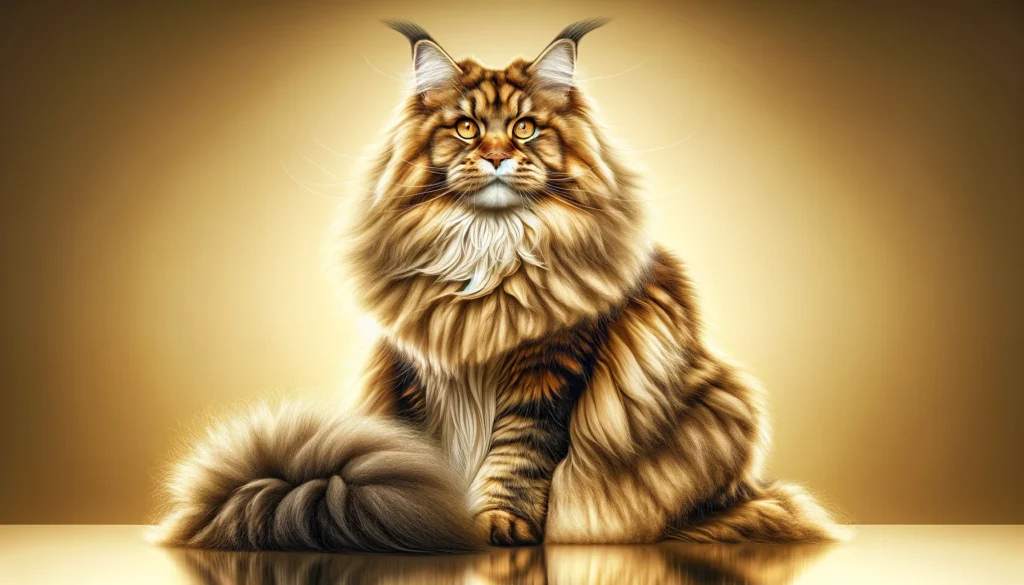
Taking care of Maine Coons
If you own a Maine Coon or are considering adding one to your family, it’s important to be aware of their specific grooming needs. Dr. Savageau points out that Maine Coons are equipped with a double-layer coat, which originally evolved to protect them against the harsh winters in Maine. However, as most Maine Coons now live indoors and in various climates beyond Maine, their thick fur requires regular maintenance. Dr. Savageau recommends brushing their coat at least two to three times a week to prevent matting and ensure their fur remains healthy and tangle-free.
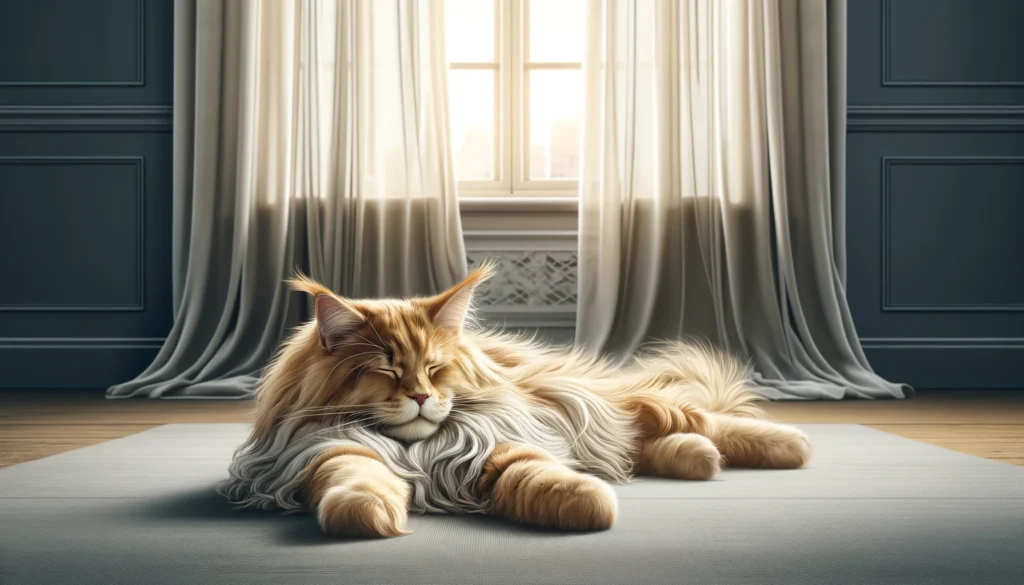
Maine Coons require a play area that accommodates their larger size. “It’s crucial to invest in a very large cat tree, ideally one that’s at least 6 feet tall,” advises Dr. Savageau. While a cat tree is a beneficial addition for any feline, for Maine Coons, the sturdiness of the structure is essential to safely support their weight. “A standard scratching post simply won’t suffice for a Maine Coon; it’s neither tall enough nor robust enough and will likely topple over,” she explains. Additionally, Dr. Savageau notes that this breed often displays behaviors akin to dogs, such as enjoying games of fetch, and they generally have a higher tolerance for water than most cats.
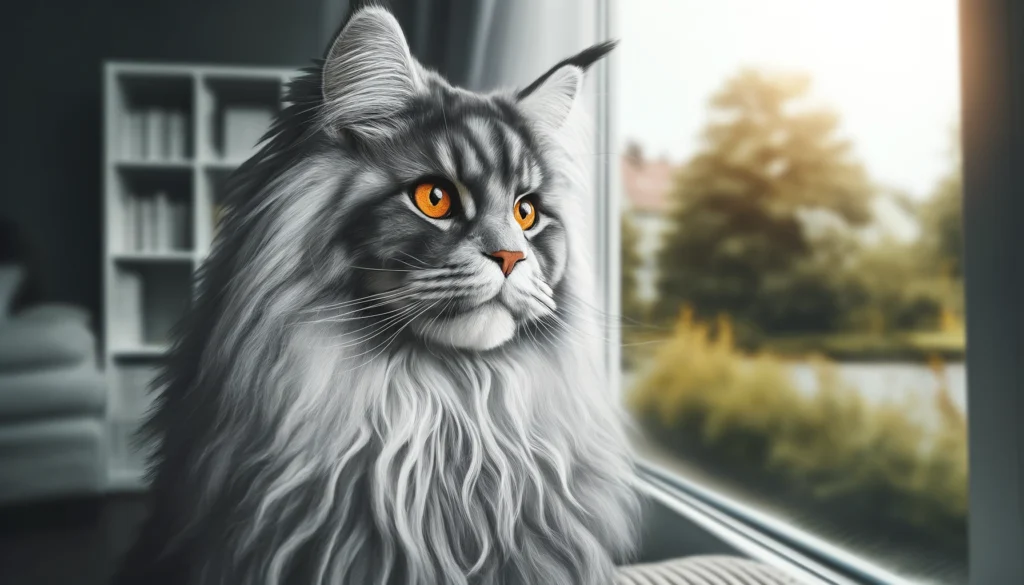
It’s essential to recognize and address the health issues prevalent among Maine Coons. This breed is particularly susceptible to Hypertrophic Cardiomyopathy, a serious heart condition more common in Maine Coons than in other cats. “There is a mutation in two genes that often causes this disease in Maine Coons,” Dr. Savageau points out. She strongly recommends conducting an echocardiogram annually as the “gold standard” test to monitor the heart’s condition. This is crucial because the disease may not always manifest visible symptoms, such as heart murmurs.Additionally, the lifespan of Maine Coons typically extends to around 13 years, which is somewhat shorter compared to other cat breeds, including domestic shorthairs and longhairs. “In general, they do not tend to live as long as other cats,” Dr. Savageau remarks, emphasizing the importance of maintaining their health and well-being. Given their shorter lifespan, it is particularly vital to cherish every moment spent with these gentle giants.
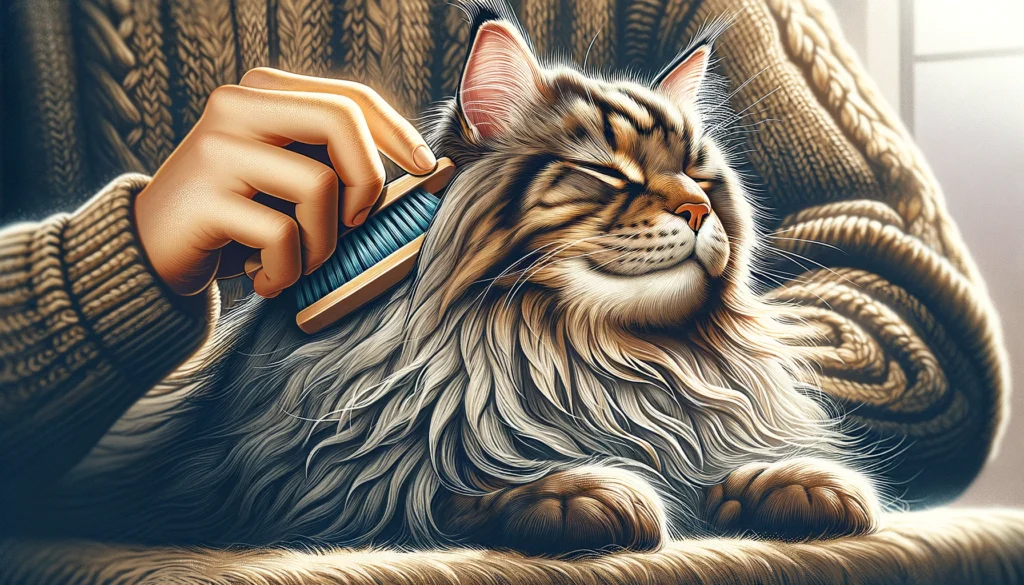
Maine Coons, with their delightful personalities, luxurious coats, and substantial size, are irresistibly charming, making it easy to understand their popularity. These distinctive attributes of Maine Coons render them one of the most adorable and affectionate breeds available. Their combination of gentle demeanor and striking physical features ensures they capture the hearts of cat lovers everywhere.
Sources:
